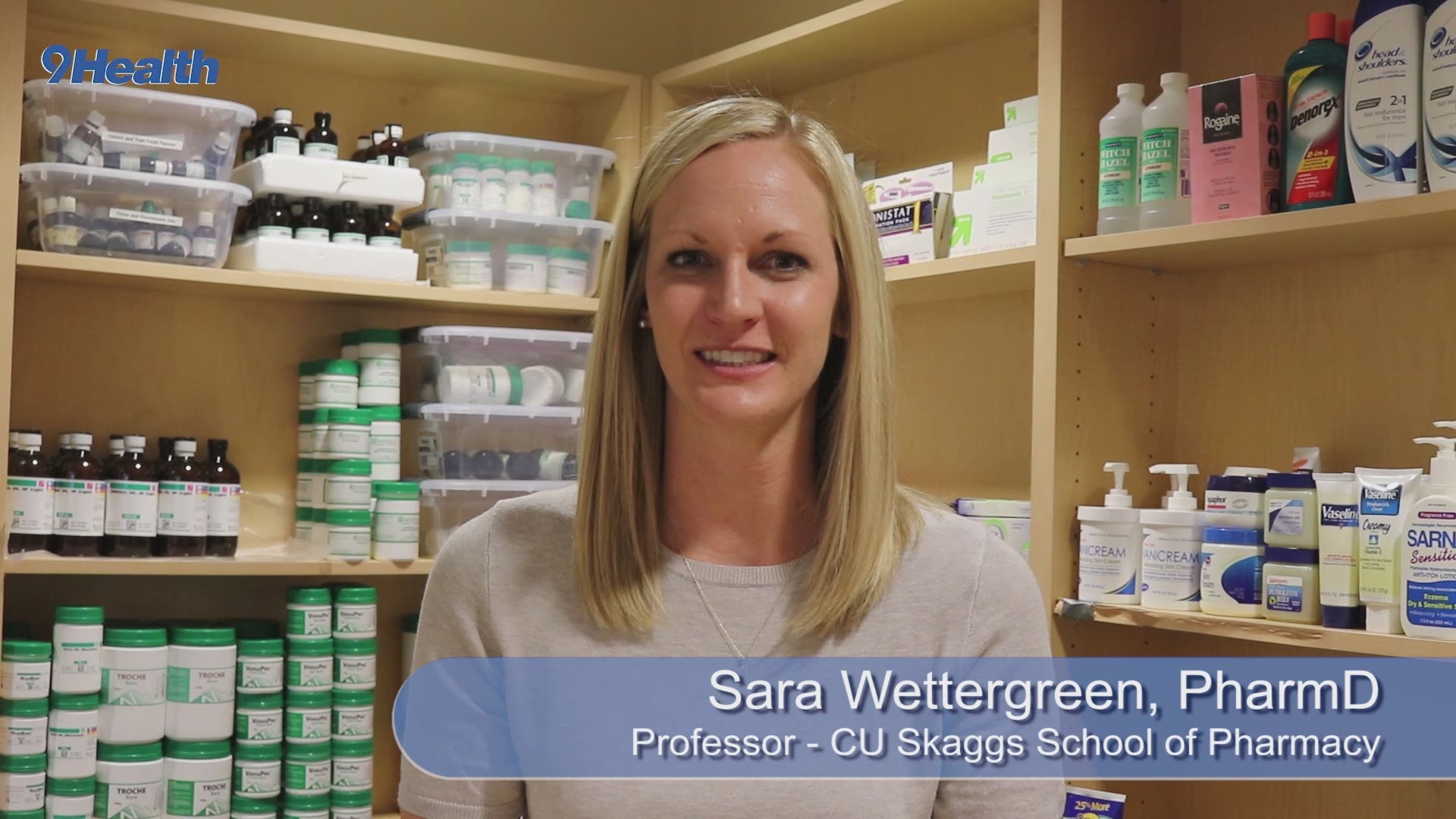COLORADO, USA — Human papillomavirus (HPV) affects about 80 million Americans with an estimated 14 million newly infected each year.
It can lead to six types of cancers.
“Any areas where there can be sexual contact and exposure to HPV are areas where you can get cancer. Cancers of the mouth and throat and cancers of genitalia,” explained Dr. Sara Wettergreen, a clinical pharmacist and professor from the University of Colorado Skaggs School of Pharmacy.
She talked with 9Health for their weekly Facebook Live show, Health Happens.
Vaccination can prevent more than 90% of HPV related cancers. The vaccine that is used is called Gardasil 9. Gardasil 9 prevents certain cancers and diseases caused by the nine HPV types covered by the vaccine.
The Centers for Disease Control recommends all boys and girls get two doses of the HPV vaccine at ages 11 or 12.
“The ideal time to get the HPV vaccine is prior to any sexual activity," Dr. Wettergreen said. "The youngest you can get the vaccine is age 9 and for most, it’s recommended up to age 26. If someone is younger than 26 and has not completed the series of the vaccine, it’s recommended to catch up to have that full protection.”
In 2018, The U.S. Food and Drug Administration (FDA) approved a supplemental application for Gardasil 9 expanding the approved use of the vaccine to include women and men aged 27 through 45 years.
“This is more of a shared decision-making process between a patient and their provider," Dr. Wettergreen said. "We're thinking about people who may have new sexual exposures and have new exposures to different types of HPV. Not all patients are indicated for that vaccine, but really based on risk factors at that time.”
Gardasil, a vaccine approved by the FDA in 2006 to prevent certain cancers and diseases caused by four HPV types, is no longer distributed in the U.S. In 2014, the FDA approved Gardasil 9, which covers the same four HPV types as Gardasil, as well as an additional five HPV types. If you received the previous version of the vaccine, you do not need to be vaccinated again.
Some people should not get some HPV vaccines, including:
- People who have ever had a life-threatening allergic reaction to any ingredient of an HPV vaccine, or to a previous dose of HPV vaccine.
- People who have an allergy to yeast.
- HPV vaccines are safe for children who are mildly ill – for example, with a low-grade fever of less than 101 degrees, a cold, runny nose, or cough. However, people with more severe illness should wait until they are better to receive the vaccine.
Vaccines, like any medicine, can have side effects. Many people who get HPV vaccine have no side effects at all. Some people report having very mild side effects, like a sore arm from the shot.
The most common side effects of HPV vaccine are usually mild, and include:
- Pain, redness, or swelling in the arm where the shot was given
- Fever
- Headache or feeling tired
- Nausea
- Muscle or joint pain
Scientific research shows the benefits of HPV vaccination far outweigh the potential risks.
August is Immunization Awareness Month and you can receive a free flu shot at the 9Health Fair this fall.
Check out our Find a Fair page to find a location near you. Together, 9Health Fair and Safeway/Albertsons are making it easy and affordable for you and your loved ones to get a flu shot.
9Health is a 501c-3 community non-profit empowering people to put health in their own hands by providing tools such as preventive health screenings, evidence-based, objective health education and eTools and resources for every day in your health journey. To support their work, go to www.9healthfair.org/sponsors/support/
SUGGESTED VIDEOS | Science is cool

